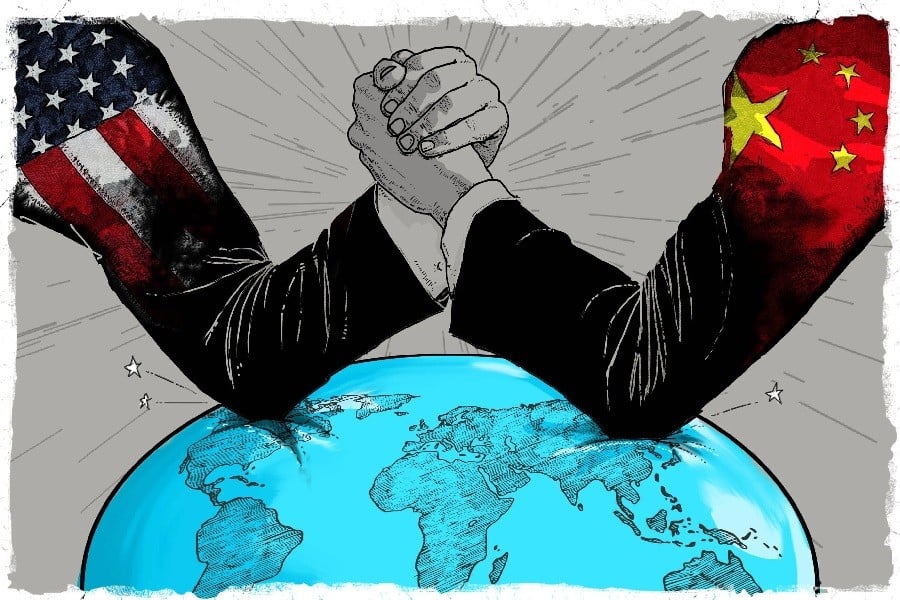 |
| US-China: Washington is no longer 'unilateral', it's time for Beijing to fight back, declaring it cannot remain silent... (Source: SCMP) |
For years, US-China economic tensions have been sometimes loud, sometimes simmering, but never showing any signs of ending.
In 2019, as the US-China trade war heated up, the People's Daily predicted that China's monopoly on rare earths, minerals crucial to manufacturing the most advanced hardware, would become a tool to counter pressure from the US.
According to the Organisation for Economic Co-operation and Development (OECD), the number of Chinese export controls increased ninefold between 2009 and 2020. However, these restrictions are often random, informal and narrowly targeted. This move is now seen as more of a random warning than a strategy.
As the US ramps up sanctions against China, preventing Western chip companies from selling advanced semiconductors and chip-making machinery to Chinese customers, new waves of retaliation from Beijing have begun to come thick and fast.
In early July, after China announced its latest export controls, this time on two key metals used in chips and other advanced technology, a former US Commerce Department official said the measures were “just the beginning” of China’s response.
On July 20, Xie Feng, China's new ambassador to the United States, said his country “cannot remain silent” in the escalating tech war.
In response to US efforts to contain China’s technological ambitions, Chinese President Xi Jinping has called on regulators to resist US coercion in what he called an “international legal struggle”.
As a result, a number of lawmakers are being assembled in an effort to create a framework for China to respond more forcefully in its trade war with the United States.
An “unreliable entities” list, created in 2020, punishes any company that undermines China’s interests. The same year’s export control law created the legal basis for the export licensing regime.
In 2021, the anti-sanctions law allows retaliation against organizations and individuals that implement sanctions imposed by other countries.
A sweeping foreign relations law enacted this year and prompted by Western sanctions against Russia, authorizing the use of countermeasures to address a range of economic and national security threats facing Asia's No. 1 economy, took effect on July 1.
On the same day, an anti-espionage law also came into effect, expanding the scope of Chinese security agencies. Meanwhile, Beijing has tightened various cybersecurity and data security rules. The new rules have been used, as opposed to simply being a warning.
In February, Lockheed Martin and a unit of Raytheon, two US arms makers that do not do arms business in China, were placed on the list of unreliable entities after shipping weapons to the Chinese territory of Taiwan.
US companies are blocked from new investments, trade activities, and many other restrictions in China.
In April, Micron, an American chipmaker, was investigated by China's cyberspace administration under a new cybersecurity law. After Micron failed a security assessment, US regulators banned the use of its chips in America's critical infrastructure.
The law’s vague wording makes it difficult for American and Western companies to assess the potential impact on their business operations in China. Some foreign law firms in China have been asked by their Western clients to assess the risk of the investigations.
The results of potential probes in China note that US tech companies that make components, such as Micron's memory chips, should be on guard for surprise investigations.
Meanwhile, China's new law allowing the government to restrict a wide range of minerals and components – is also creating uncertainty for the businesses of its foreign partners.
Western green energy technology manufacturers will certainly be affected, noted David Oxely of international consultancy Capital Economics, in particular battery manufacturers that rely heavily on China across their entire supply chain.
Last year, China's Ministry of Commerce proposed a ban on exports of ingot casting technology used to make solar panels.
If implemented, the ban could stifle the growth of solar technology in the West, hurting Western manufacturers while increasing demand for Chinese-made solar panels.
Restrictions on two metals critical to chipmaking, gallium and germanium, could create headaches for U.S. strategists. Rules that took effect on Aug. 1 require exporters to apply for licenses to sell the metals to foreign customers.
China produces 98% of the world’s raw gallium, a key ingredient in advanced military technology. A shock to gallium supplies could cause long-term problems for the US defense industry, according to an assessment by the Washington-based think tank CSIS.
Furthermore, a gallium-based compound called gallium nitride could form the basis of a new generation of high-performance semiconductors. Keeping gallium out of foreign hands would certainly hamper Western efforts to develop this technology.
However, from another perspective, expert Peter Arkell of the Global Mining Association of China (a lobby group), noted that China may have to re-import many finished products made abroad using rare earths, so the bans could come back to harm Chinese companies themselves.
Full export bans would also push the West to build its own matching production capacity and look for alternatives, which would weaken China’s hand in the long run, said Ewa Manthey, an analyst at Dutch bank ING.
In addition, labeling large Western companies doing business in China as untrustworthy entities could backfire, endangering thousands of Chinese jobs.
Raytheon, for example, has an aerospace subsidiary, Pratt & Whitney, which employs 2,000 people in China. That may explain why, rather than blacklisting all of Raytheon’s subsidiaries, China’s Ministry of Commerce limited the ban to the company’s defense unit.
Source


![[Photo] General Secretary To Lam, Secretary of the Central Military Commission attends the 12th Party Congress of the Army](https://vphoto.vietnam.vn/thumb/1200x675/vietnam/resource/IMAGE/2025/9/30/9b63aaa37ddb472ead84e3870a8ae825)
![[Photo] Solemn opening of the 12th Military Party Congress for the 2025-2030 term](https://vphoto.vietnam.vn/thumb/1200x675/vietnam/resource/IMAGE/2025/9/30/2cd383b3130d41a1a4b5ace0d5eb989d)
![[Photo] The 1st Congress of Phu Tho Provincial Party Committee, term 2025-2030](https://vphoto.vietnam.vn/thumb/1200x675/vietnam/resource/IMAGE/2025/9/30/1507da06216649bba8a1ce6251816820)
![[Photo] President Luong Cuong receives President of the Cuban National Assembly Esteban Lazo Hernandez](https://vphoto.vietnam.vn/thumb/1200x675/vietnam/resource/IMAGE/2025/9/30/4d38932911c24f6ea1936252bd5427fa)

![[Photo] Panorama of the cable-stayed bridge, the final bottleneck of the Ben Luc-Long Thanh expressway](https://vphoto.vietnam.vn/thumb/1200x675/vietnam/resource/IMAGE/2025/9/30/391fdf21025541d6b2f092e49a17243f)



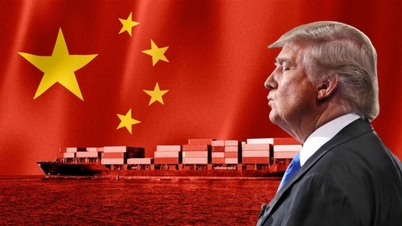

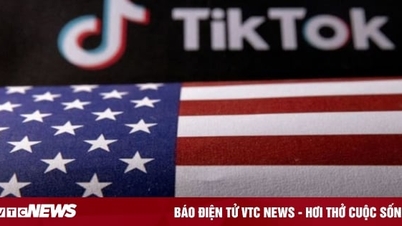






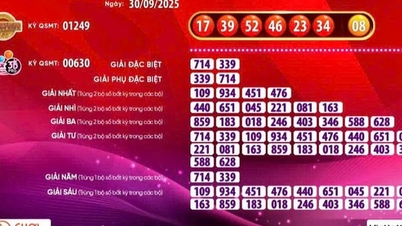


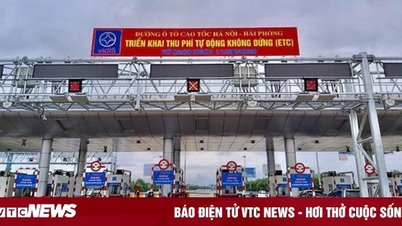











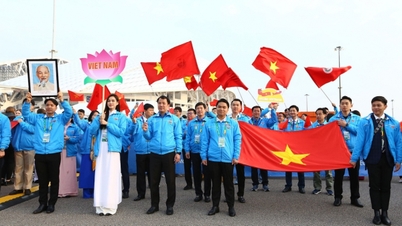

































































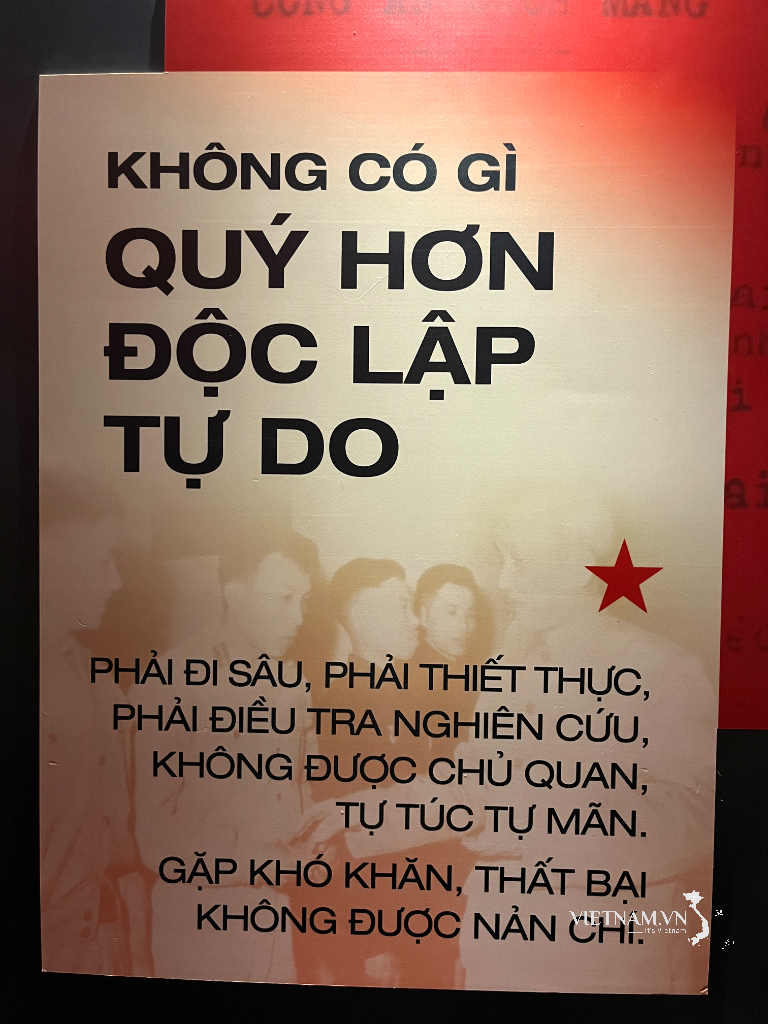



Comment (0)